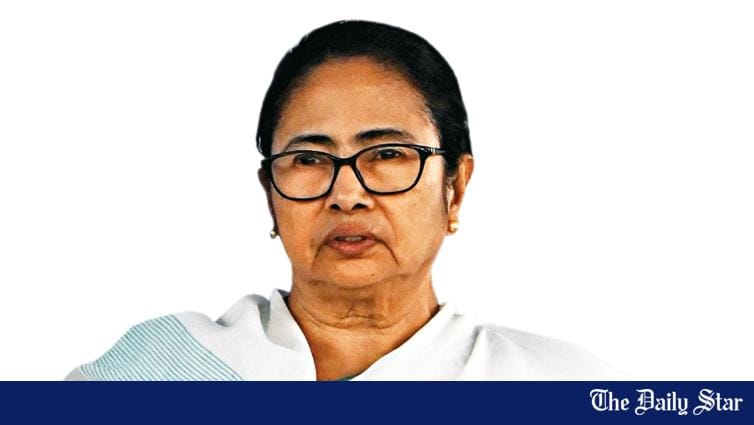- Copy to clipboard
- Thread starter
- #21
Saif
Senior Member
- Joined
- Jan 24, 2024
- Messages
- 15,397
- Reaction score
- 7,874
- Nation

- Residence

- Axis Group


Historic Farakka Long March Day today: IFC urges govt to save common rivers
Breaking News, International News & Multimedia
thedailynewnation.com
Historic Farakka Long March Day today: IFC urges govt to save common rivers
16 May 2024, 12:00 am

Staff Reporter :
The International Farakka Committee (IFC) has called on the government and all stakeholders to work together to protect Bangladesh's 54 common rivers and environment.
Their statement coincides with Farakka Long March Day, which commemorates a historic march led by Moulana Abdul Hamid Khan Bhasani in 1976 to protest India's withdrawal of water from the Ganges River.
The IFC lauded Bhasani's movement, which ultimately led to the signing of the 1977 Ganges water treaty. However, the situation has deteriorated with water being diverted from all 54 shared rivers, causing water scarcity during dry seasons and floods during monsoons.
Bangladesh shares 57 transboundary rivers, 54 with India and 3 with Myanmar. The 1977 treaty, due to expire in two years, doesn't guarantee Bangladesh's dry season water share due to unregulated diversions upstream of Farakka.
The Teesta River exemplifies the problem with India diverting its entire dry season flow, while opening all gates during the monsoon, causing floods and erosion in Bangladesh which displaces families and damages crops every year.
Moulana Bhasani's historic Farakka Long March, done just six months before his death, thus remains relevant to this day. The great leader united the people in favour of the demand for the due share of water in the Ganges. The people now should get due shares of all 54 common rivers to protect the riverine country from environmental decline, loss of life, and livelihoods.
The IFC leaders urged the government to pursue the path of basinwide sustainable and integrated management of the common rivers to keep those alive up to the sea and protect Bangladesh created by them over the millennia.
The signatories to the statement were Sayed Tipu Sultan, secretary general; Mohammad Hossain Khan, joint secretary general; Ataur Rahman Ata, organising secretary of IFC New York; Prof. Jasim Uddin Ahmad, president; Syed Irfanul Bari, general secretary of IFC Bangladesh; and Mostafa Kamal Majumder, coordinator, IFC.
16 May 2024, 12:00 am
Staff Reporter :
The International Farakka Committee (IFC) has called on the government and all stakeholders to work together to protect Bangladesh's 54 common rivers and environment.
Their statement coincides with Farakka Long March Day, which commemorates a historic march led by Moulana Abdul Hamid Khan Bhasani in 1976 to protest India's withdrawal of water from the Ganges River.
The IFC lauded Bhasani's movement, which ultimately led to the signing of the 1977 Ganges water treaty. However, the situation has deteriorated with water being diverted from all 54 shared rivers, causing water scarcity during dry seasons and floods during monsoons.
Bangladesh shares 57 transboundary rivers, 54 with India and 3 with Myanmar. The 1977 treaty, due to expire in two years, doesn't guarantee Bangladesh's dry season water share due to unregulated diversions upstream of Farakka.
The Teesta River exemplifies the problem with India diverting its entire dry season flow, while opening all gates during the monsoon, causing floods and erosion in Bangladesh which displaces families and damages crops every year.
Moulana Bhasani's historic Farakka Long March, done just six months before his death, thus remains relevant to this day. The great leader united the people in favour of the demand for the due share of water in the Ganges. The people now should get due shares of all 54 common rivers to protect the riverine country from environmental decline, loss of life, and livelihoods.
The IFC leaders urged the government to pursue the path of basinwide sustainable and integrated management of the common rivers to keep those alive up to the sea and protect Bangladesh created by them over the millennia.
The signatories to the statement were Sayed Tipu Sultan, secretary general; Mohammad Hossain Khan, joint secretary general; Ataur Rahman Ata, organising secretary of IFC New York; Prof. Jasim Uddin Ahmad, president; Syed Irfanul Bari, general secretary of IFC Bangladesh; and Mostafa Kamal Majumder, coordinator, IFC.










